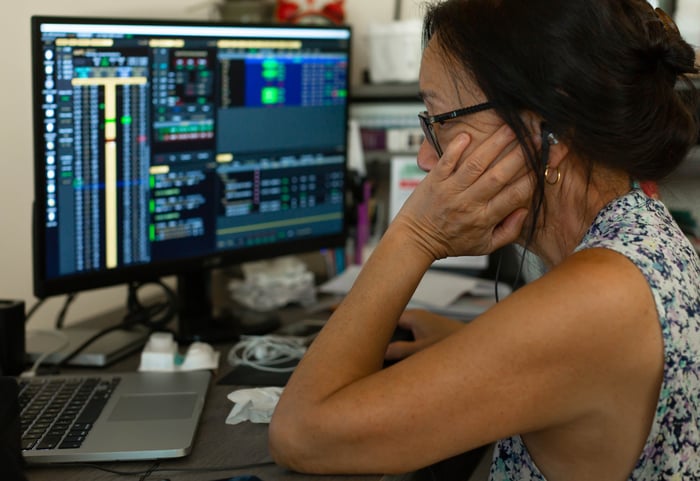NVIDIA (NVDA 1.28%) and The Trade Desk (TTD 1.07%) made headlines recently when the high-growth technology companies each announced an upcoming stock split. Both businesses said the goal of their respective stock split was to make shares more accessible to employees and a broader base of prospective investors. Both companies' stocks have run substantially higher over the past 12 months, with The Trade Desk stock up 83% over the past year, while NVIDIA has gained 73% (as of this writing).
This offers at least a partial justification for the companies to split their shares. The Trade Desk and NVIDIA are currently trading at roughly $561 and $626, respectively. Given the high sticker price, a stock split will make shares of each company more accessible to individual investors that might have smaller amounts of money to invest.
How will the respective stock splits work? And perhaps more importantly, should investors buy The Trade Desk or NVIDIA shares because of the upcoming stock splits?

Image source: Getty Images.
How will this work, exactly?
While the companies announced their stock splits within weeks of each other, the details vary.
In conjunction with its first quarter earnings report, The Trade Desk announced a 10-for-1 stock split of its common stock in the form of a stock dividend. Each shareholder of record as of June 9 will receive nine additional shares for each share held, which will be delivered after the market close on June, 16. The stock will begin trading on a split-adjusted basis the following day.
NVIDIA's stock split is slightly more complicated. The board of directors approved a 4-for-1 stock split, also in the form of a stock dividend, but the move will be conditional upon receiving shareholder approval to increase the number of authorized shares to 4 billion. The vote will take place at the company's annual stockholder meeting on June 3. Assuming the measure is approved, each shareholder of record as of June 21 will receive three additional shares for each share held, which will be delivered after the market close on July 19. The stock will begin trading on a split-adjusted basis the next day.
What will this look like?
The price of the shares after the split will depend on what the stocks are trading for at the time the split takes effect. For the purposes of illustration, we can use the stocks' prices today.
For every share of The Trade Desk that an investor owns -- priced at $561.29 (as of this writing) -- post-split they would own a total of 10 shares worth $56.13 each. Similarly, for every share of NVIDIA stock -- currently trading for $625.91 -- an investor holds at the time of the split, after the split, shareholders will own four shares valued at roughly $156.48 each.

Image source: Getty Images.
A stock split doesn't make The Trade Desk or NVIDIA a better investment
Savvy investors likely already know that a stock split is tantamount to taking a pizza and cutting into a greater number of slices. This doesn't result in more pizza, just a greater number of smaller slices. The same is true of a stock split: there are just a greater number of lower-priced shares. The market cap of each company will remain unchanged.
It's important to note that shares of both companies have climbed in the wake of their split announcements, but there may well be other factors at play. Tech stocks have been beaten down in recent months as investors flocked to companies they viewed as pandemic recovery plays. However, over the past couple of weeks, those very same stocks -- including The Trade Desk and NVIDIA -- have been recovering, as investors begin to think longer term.
There's also an argument that lower-priced shares could result in increased demand for these stocks and that certainly might be the case over the short term. Over the long run, however, stock prices are ultimately driven higher or lower by the performance of the underlying business. Revenue growth, greater cash flows, and increasing earnings per share are the only sure recipes to stock price increases.
As such, investors shouldn't buy The Trade Desk or NVIDIA stocks based solely on the fact that they are splitting their stocks, but rather judge them based on the strength of their businesses and their potential over the long term.





